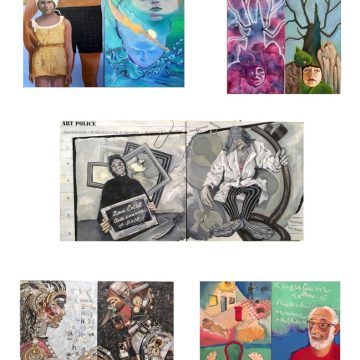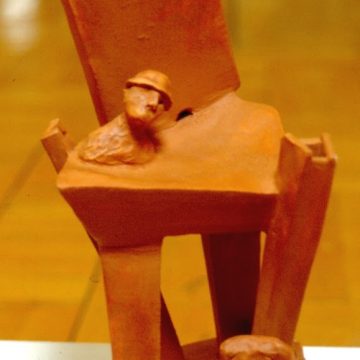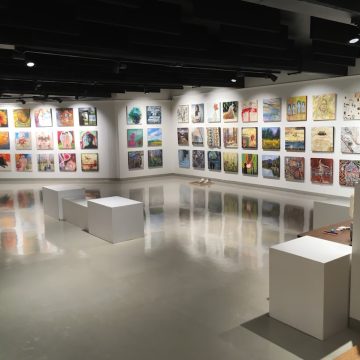The Art Lesson
Cay, high relief
C. Ascher
University art education programs, at least the programs about which I am aware, seem to limit their training of teachers for elementary and secondary levels without requiring them to have proven artistic practices.
This means that teachers can qualify as art educators without being artists. They are trained to teach THROUGH art and to think they are teaching art.
“What’s the problem?” you ask. Well.
For the teachers, if they get jobs actually teaching in elementary or high schools, they will happily use art to teach all manner of socializing attributes. After all, in a school curriculum, the point isn’t to teach students to BECOME artists but to expose them to methods by which they can express and communicate more effectively in whatever more desirable profession they are directed into.
That’s assuming that schools have an art program, that the art teacher isn’t re-purposed to teach say math or sex education, that actual art materials are available, or that there is an art room that hasn’t been converted to a computer lab. Because teachers who actually get jobs in ‘the system’ have accepted that hey are Teachers, that they can end up teaching whatever subject they are assigned.
The big losers here are the poor, unsuspecting students who take art classes thinking they will be taught to make art and become artists. If they’re in a school with an art program, the most they’ll get are ‘projects’, usually with some kind of hidden socializing agenda (recycling, for instance, because it’s good for the environment but better for the school budget).
Like taste testers, ‘art’ students will be rushed from exercise to exercise, rarely repeating any because society and most parents want engineers or scientists in the family, not artists. They’re cured of their art disease with the “you’ll starve’ pill, or become scared they’ll end up having to teach like their teachers, usually their only contact with ‘artists’.
These art students are especially losers when they go take art classes in ‘alternative’ educational contexts like an art centre, because too often they encounter elementary or high-school-trained teachers who couldn’t get jobs in the system. Even worse then, because these teachers aren’t trained to think of students in alternative contexts as clients who pay expecting to learn what they couldn’t in schools.
Yes, I’m frustrated. I’m frustrated because I am dealing with people who have come from university art education programs to teach in alternative contexts for which I am now responsible, and they are not delivering. They see ‘alternative art education’ only as leisure or recreation. I am frustrated because despite their self-satisfaction as teachers and their degree-backed belief that they are artists enough to teach, I have to try to de-program and make them effective art centre teachers., even as I encourage them to practice art.
I have a suggestion to make to university since I’d rather hire artists to teach art, but they need to learn teaching techniques. Have two branches of the Art Education Bachelor and especially Masters levels degrees. Keep one for the generalists, the ones interested in getting into the school systems. Have another for artists with professional practices who want to learn teaching techniques appropriate for art centres and other art-dedicated venues. Let there be places where students go to learn to become artists from people who actually believe it’s possible and prove it by example.







